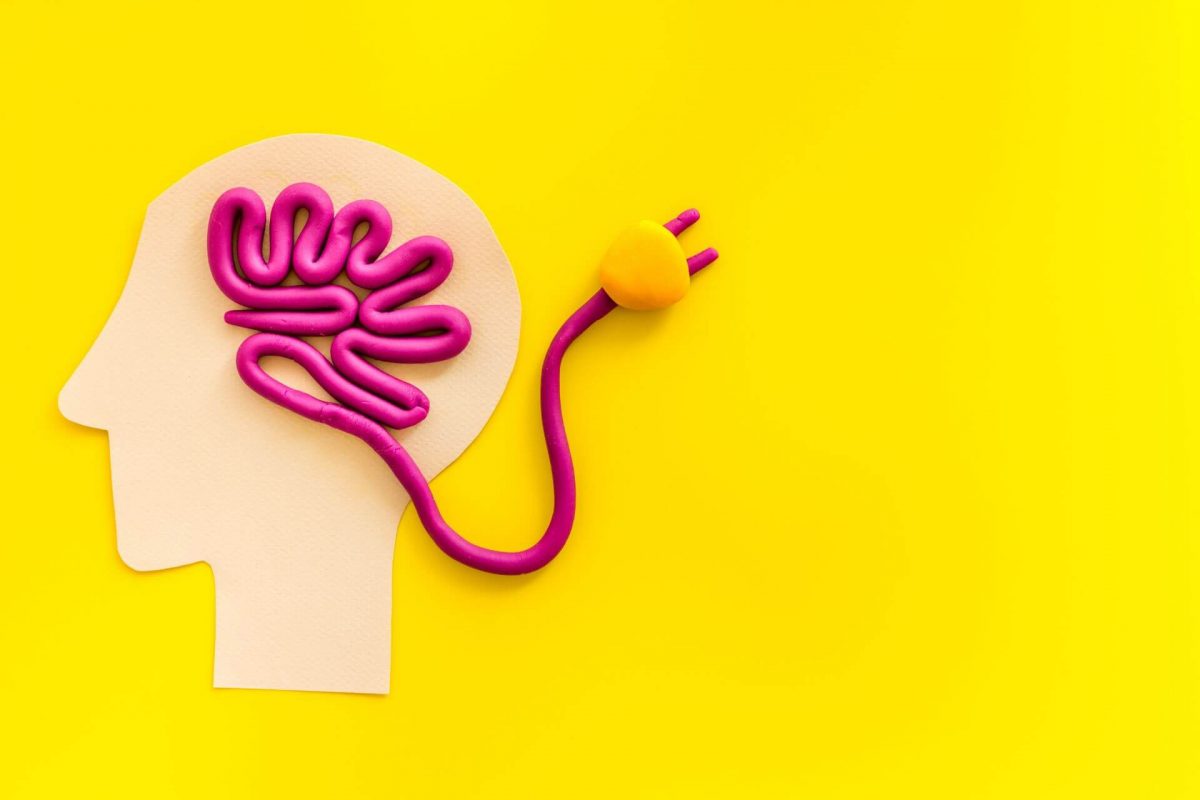You might not know it but your brain is like a muscle. It’s not a true muscle because it doesn’t relax or contract; rather, it’s a complex cellular structure that functions in a very similar way to your body’s muscles. And just like the muscles of our arms, legs and abs; it has the potential to be trained and maintained. Keeping your brain fit is as important as keeping your body fit.

10 Things You Can Do To Keep Your Brain Fit And Healthy
According to the Alzheimer’s Association, research shows that keeping your brain active increases its vitality. Doing new things in new ways is one way to help retain brain cells and connections. It may even produce new brain cells. Pick a few ideas from our list of 10 things to do to keep your brain fit and enjoy a long life of good brain health.
- Keep fit and healthy
It’s been proven time and time again that people who keep fit and healthy are less vulnerable to cognitive decline as they age. In fact, research shows exercise can prevent brain shrinkage and actually make you smarter.
There are lots of ways to keep fit without dragging yourself outside to run 10 kilometers or pumping weights in the gym. You can dance to festive music, jump on a stationary trampoline, do pole dancing, chase your dog in the park, go for brisk walks or do yoga.
We know what keeping healthy means but just a reminder; not smoking or taking recreational drugs, maintaining a healthy BMI, regularly exercising, eating lots of fresh vegetables and fruits, cutting out junk food and managing how much alcohol you drink. - Learn something new
Practicing a new skill increases the density of your myelin. That’s the white brain matter in your brain that helps improve performance. It also forms more neural pathways and allows electrical impulses to travel faster across them. When you combine these two benefits, you’ve got a good chance of keeping dementia at bay.
So if you’ve always wanted to learn to play the piano or guitar, learn a new language, take salsa lessons, join a tai chi class or learn to play golf; don’t hesitate because your brain will thank you later. - Work on a 1000-piece jigsaw puzzle
Jigsaw puzzles workout the left and right sides of your brain at once. Your left brain is logical and works in a linear fashion, while your right brain is creative and intuitive. According to Sanesco Health, when you’re doing a jigsaw puzzle, both sides are engaged. It’s like a mental workout that improves your problem-solving skills and attention span. No surprisingly, Bill Gates is an avid puzzler.
Jigsaw puzzles also improve your short-term memory. Doing a puzzle reinforces connections between brain cells, improves mental speed and helps improve short-term memory.
Lastly, jigsaw puzzles improve your visual-spatial reasoning. When you do a jigsaw puzzle, you need to look at individual pieces and figure out where they’ll fit into the big picture. If you do it regularly, you’ll improve visual-spatial reasoning which helps with a whole host of things. - Try Using Your Non-Dominant Hand
Neurobiologist Lawrence Katz recommends using your non-dominant hand to strengthen your mind. This is because using your opposite hand can be challenging and it’s a great way to increase brain activity.
When you’re eating, brushing your teeth or writing in your journal; switch hands. It’s difficult at first to use your ‘wrong hand’ but you’ll find it becomes easier after awhile because your brain learns to adapt. - Meditate
Meditation has been used for thousands of years to not only calm people but also because it has huge psychological benefits. Studies show that mindfulness meditation can help engage new neural pathways. This helps improve self-observational skills and increase mental flexibility.
Research also shows that meditation can help improve attention, focus, empathy and even immunity. Download a meditation app and dedicate 15 to 20 minutes each day for relaxation and effective brain training. Better still, sign up for an online meditation course. - Play brain-training games on your phone
Download one of the many brain games on your phone and train your brain while waiting in the doctor’s room or in you lunch break. It sure beats mindlessly scrolling through Facebook and Instagram which is filled with so much negative news.
There is compelling evidence that brain games may help sharpen your thinking skills as well as speed up cognitive processing, improve planning skills and reaction times and improve your short-term memory.
The best games for brain training are:
– Sudoku
– Lumosity
– Crosswords
– Elevate
– Peak
– Happy Neuron
– Braingle
– Queendom
- Play cards
Playing card games is a great way to stimulate your brain and boost your brain health. This is especially true for older adults to stave off symptoms of dementia. Card games help stimulate the immune system and force the use of visualisation, memory and sequencing skills. Playing cards also involves socialising with friends and family which helps keep your brain active and engaged.
The 6 best card games for brain stimulation are:
– Bridge
– Poker
– Go Fish
– Gin Rummy
– Black Jack
– Solitaire - Learn a new language
Research shows there are definite cognitive benefits of being bilingual. Cognitive psychologist Dr Christos Pliatsikas found that even among people who learn a new language late in life, they had stronger, more efficient brain structures than their monolingual peers.
This is because bilingual brains are multitasking all the time. Even when you’re speaking one language, you’re constantly summoning vocabulary from both languages and choosing which word or phrase to use. That constant practice helps keep brains active and allows bilingual people to juggle tasks more easily. - Eat more brain food
As they say, you are what you eat and if you eat more “brain healthy” food, you’ll stay sharp as a button for longer. It’s all about the molecular basis of your brain and how brain food boosts brain health.
Research shows that the best brain foods are the same ones that protect your heart and blood vessels. The best brain foods include:
– green, leafy vegetables such as kale, spinach, collards and broccoli which are rich in brain-healthy nutrients like vitamin K, lutein, folate and beta carotene
– fatty fish which is abundant sources of omega-3 fatty acids and healthy unsaturated fats that have been linked to lower blood levels of beta-amyloid; the protein that forms damaging clumps in the brains of people with Alzheimer’s disease
– blueberries that contain flavonoids which is the natural plant pigments that give berries their brilliant hues; berries can help improve memory and delay cognitive decline by a number of years
– tea and coffee which contains concentration-boosting caffeine; caffeine can also help solidify new memories
– walnuts which contain excellent sources of protein and healthy fats that can help to improve your memory; walnuts are high in a type of omega-3 fatty acid called alpha-linolenic acid (ALA) which helps lower blood pressure and protects arteries, and that’s good for both your heart and brain
– turmeric which contains the active ingredient Curcumin; this nutrient has been shown to cross the blood-brain barrier, meaning it can directly enter the brain and benefit the cells there - Soak up the sunshine
Sunshine is an essential ingredient for making compost and fertilising plants. It’s also an essential ingredient for ‘fertilising’ humans so they keep strong and healthy. When you are exposed to sunlight, your body produces Vitamin D. This essential vitamin increases levels of BDNF in the brain which is the magical ‘fertiliser’ that promotes and regulates the process of neurogenesis (the growth and development of human tissue).
Sunlight also increases the brain’s release of a hormone called serotonin. Serotonin is the magic chemical that helps boost your mood and keeps you calm and focused. At night, darker lighting triggers the brain to make another hormone called melatonin. This hormone is responsible for helping you sleep. Without loads of healthy sunshine, your brain will feel foggy and dull.

Why it’s important to strengthen your brain
Something as simple as learning to play the guitar or playing bridge with friends can result in your brain structure changing and getting larger. Basically, inside the outer layer of the brain (the cortex) are billions of tiny nerve cells called neurons. The nerve cells have branches connecting them to other cells in a complicated network. Communication between these brain cells is what allows us to think and solve problems.
When you learn new things or do simple tasks to keep your brain active, these tiny connections in the brain actually multiply and get stronger. The more you challenge your mind to learn, the more your brain cells grow. This is true for older people so it’s never too late to strengthen your brain.

Can brain training help with addiction recovery?
Yes, brain training can certainly help with addiction recovery. The brain is highly vulnerable to addiction because of its delicate structure and chemistry but it’s also a remarkable muscle which can be trained and maintained.
The good news is researchers have found that brains that have been “damaged” by harmful substances do have the potential to unlearn addictive behaviours and re-set back to its baseline level. Simple things like mindfulness mediation, exercise and learning new skills can boost dopamine proteins and revitalise brain pathways which you need for good mental health.
We’re here to help.
Contact us today if you’d like a confidential and free chat with one of our highly-trained professionals.

